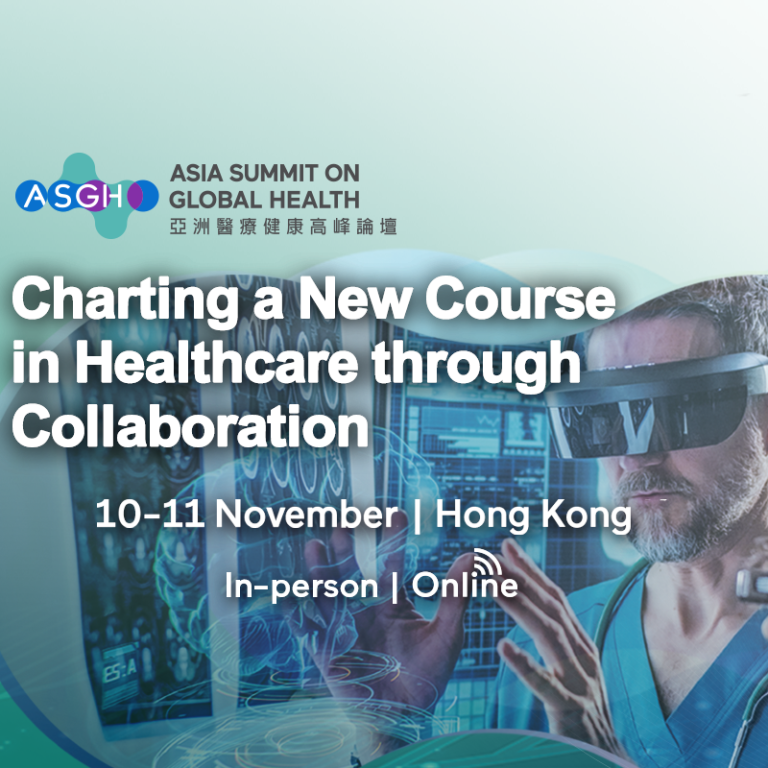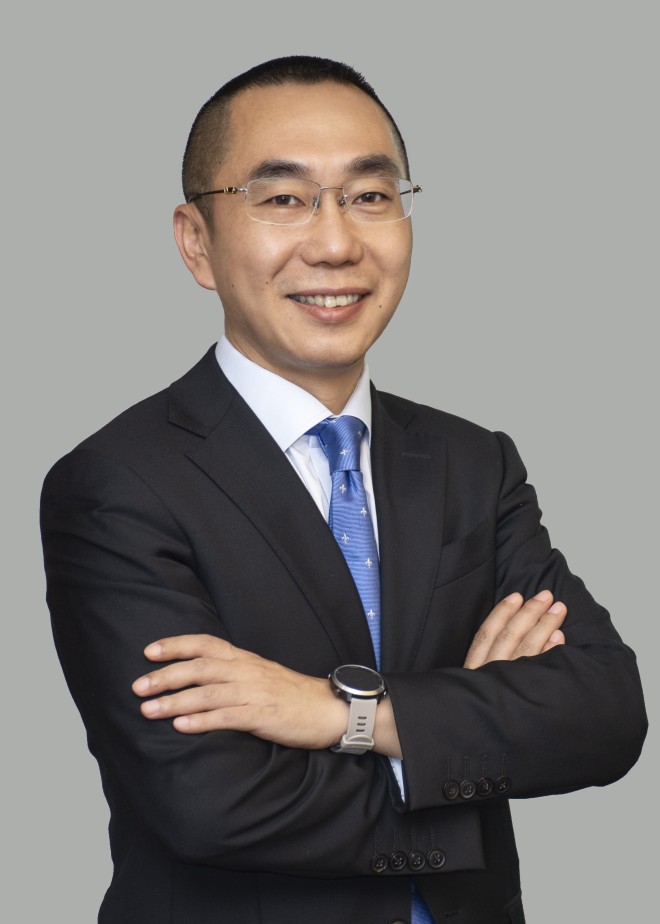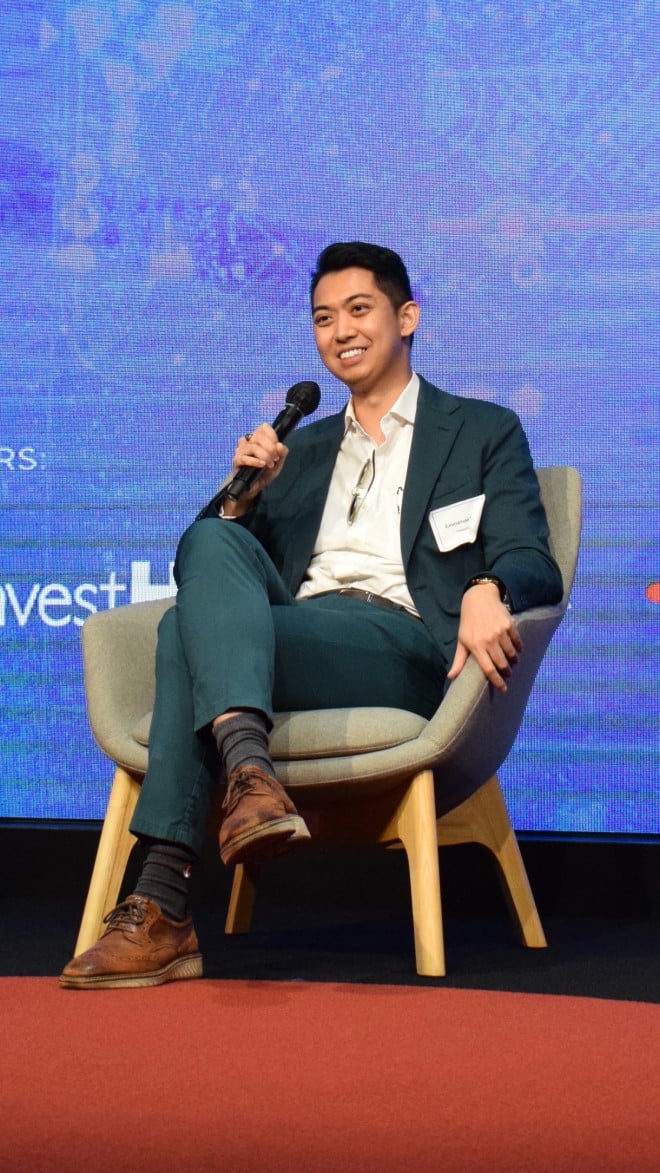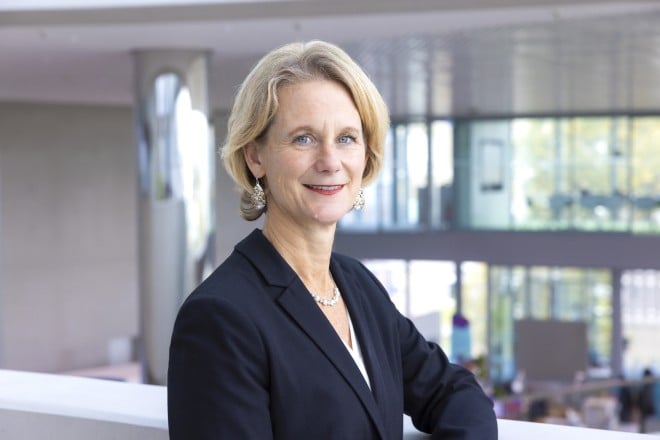
Themed “Charting a New Course in Healthcare through Collaboration, the second Asia Summit on Global Health will be staged in Hong Kong on 10-11 November.
Convergence of top-notch talents, investment capital and inherently advantageous geographical location leveraging on the Mainland China while engaging the world, makes Hong Kong Asia’s top biotech fundraising hub.
[The content of this article has been produced by our advertising partner.]
Blooming prospect of healthcare: bridging industry development and investment opportunities
The pandemic has accelerated businesses to explore the lucrative business opportunities in the healthcare and medical sector. The Hong Kong Trade Development Council (HKTDC) has been providing resourceful platforms to facilitate business connections, ranging from research and innovation on the upstream, to manufacturing of equipment and devices on the downstream.
The inaugural “International Healthcare Week” (IHW) will be coordinated by HKTDC to bring together close to ten healthcare-related events in Hong Kong, creating synergy in global partnership of healthcare leveraging Hong Kong’s role as an innovation and investment hub during the period from 1-15 November, including Asia Summit on Global Health (ASGH). It will provide a platform for investment community to connect with global opportunities.
Haitong International, Hong Kong-based investment bank of leading China brokerage, eyes on healthcare industry. It completed over 30 healthcare companies initial public offerings in the past 5 years including China's largest clinical research service firm Hangzhou Tigermed Consulting (as of its listing in 2020).
Citing Hong Kong as an international financial hub with strong medical talents, executive committee member of Haitong International Henry Shi firmly believes in the city's unique advantage for her “openness, transparency and regulation which is widely accepted by the world”. He affirms it will continuously attract Asia including China’s biotech firms to list in Hong Kong, especially after HKEX Chapter 18A reform enabling pre-revenue biotech firms to list.
“China healthcare security system reform breeds immense investment opportunities,” Shi said. He sees a promising future in areas such as novel drug discovery, AI-based platform for medicines development, and medical devices like high-end medical imaging systems.
Shi exalted medical products as “human being’s most important product for survival” when asked about why placing one of the investment focuses on healthcare. Hong Kong’s longest life expectancy and China's vast population also boost health awareness and biotech markets, he adds.
Besides tapping into companies with great potential and introducing them to international capital markets, Shi said Haitong International also strives to promote integration and counter purchase between China and overseas outstanding firms.
As strategic partner of ASGH, Haitong will launch a joint research report on China’s healthcare trends with HKTDC on the first day of ASGH hopes more people learn about China’s medical industry development, “With more high-quality healthcare companies go public, it helps explore synergy and value creation, thus accelerating the whole industry development. We are willing to do something that scale-up, connecting healthcare sectors with investors and partners, it exceeds what an investment bank does."
Hong Kong as ideal biotech fundraising hub
Pentepebble, an early-stage investment fund that invests in healthcare companies connected to the Greater Bay Area, has joined forces with Tiger Jade Capital to form the Tiger Jade Pebble Accelerator (TJPA). It strives to help start-ups “from zero to one”.
“My job and my dream is to build up an ecosystem here so that professors and researchers can realize the commercial potential of their findings and inventions,” the Managing Partner of TJPA Emmanuel Hui said.
With a portfolio of 12 companies with Hong Kong connection, TJPA’s latest investment was Great Bay Bio, an artificial intelligence-based company for contract development and manufacturing organization (CDMO)applications, which will become one of the first tenants in Hong Kong-Shenzhen Innovation and Technology Park.
Besides advantageous geographical location with close proximity to Mainland China and connection to international communities, Hui said Hong Kong’s attractiveness also lies in its strong research output, robust financial institutions, business and intellectual property laws, and international arbitration centre being recognised in Mainland China and international communities.
“Hong Kong definitely has an edge from its clinical science and financial infrastructure, and cohesion as a bridge between international medical entities and Chinese regulatory framework,” he said.
Investment in biotech start-up may take longer time for return but Emmanuel believes in its blooming prospect. “Under the pandemic, recession, and geopolitical tension, every sector has a tough time, but biotech will prevail. People always need medicines. Healthcare is always a necessity. Science moves on,” he said.
“Hong Kong has all the ingredients now,” Emmanuel said with hope that biotech emerges as a new investment and industrial pillar for the city and anticipates more players joining to provide early-stage support for biotech start-ups.
Hong Kong as China’s innovation gateway to the globe
As an international hub to help mainland innovation companies to expand overseas, Hong Kong remains the top choice. One example is Yuanhua Robotic, Perception & AI Technologies Ltd. (Yuanhua Tech). The company was established in 2018 and positioned as an innovative state-of-art enterprise with focus on specialized orthopedic surgery robot systems across a range of medical departments.
Yuanhua Tech completed round-A financing of $31.53 million in March 2021 and round-B financing of over $51 million in January 2022. It was founded in Shenzhen by Meng Lily, and Prof Meng Max Qing Hu, chief scientist at Yuanhua Tech, to develop and seize the promising market opportunities in Mainland China. It established a second headquarter at Hong Kong Science and Technology Park in September 2022 with aims to capture Hong Kong, ASEAN and the international markets.
“There is a necessity for corporations to raise capital before scaling up. Yuanhua Tech established a second headquarters at Hong Kong considering its international financial centre status and extensive connection with the world. Our experience demonstrated that Hong Kong served as an ideal platform for fundraising.” Mr Michael You, Board Secretary of Yuanhua Tech said.
Yuanhua Tech has been working on getting credentials to aim at overseas markets. “We have got NMPA registration certificate, and will go on gathering as many opinions as from clinicians to enhance our robotic systems. We are preparing to obtain CE registration certificate and also reached out to the health authorities for local registration. Once we get registration issued by local authorities, we shall take further steps to implement clinical application in hospitals at Hong Kong.” Mr You added.
“We are not only focusing on commercializing our products but also we have to burnish the ‘Made in China’ sterling reputation of medical equipment.” Mr You believed that technologies originated from China would become cutting-edge and beneficial to global well-being.
Yuanhua Tech anticipates to have better grasp of the healthcare industry's latest trend and explores business opportunities through participating in the ASGH.
Translate groundbreaking research into technological business
Local biomedical start-up EggLogics, founded in 2018 by Dr Lee Tin Lap, focused on research, development and delivery of novel human infertility solutions which gives hope to women of mature age going through in vitro fertilization (IVF).
EggLogic invented innovative “EggCellent” technologies to improve the success rate of IVF using revolutionary non-invasive and autologous solutions. Egg-enrichment technology “EggBoost” aims to improve egg quality and increase IVF-usable eggs while “EggCheck” is the first precise gene-based egg quality assessment to exclude bad eggs in IVF.
EggLogics was supported by several fundings and incubation programme in Hong Kong such as HKTDC’s Start-up Express Programme while received support from an industrial partner and investment fund Pentepebble. It is actively preparing for A-round financing next year.
Dr Lee Tin Lap, Founder and Chairman, EggLogics, said the biotech ecosystem in Hong Kong has been blooming progressively in the past 5 years, “Hong Kong provides start-ups with ‘fertile soil’ to become ‘thriving’. If we had started business without investors and supporting measures 5 years earlier, it would not have successfully transformed technologies into commercial products.” He appreciated Hong Kong Government sparing no effort to enhance the development of biotech innovation arena.
“Hong Kong acts as a bridge to connect us to the Mainland and overseas markets.” Dr Lee added, “we have no idea how to deal with regulations with Mainland and overseas authorities, but we are lucky to have investors help solve business and regulatory challenges.” EggLogics prepares to expand business in the Greater Bay Area and Southeast Asia, meanwhile intends to apply for patents in Europe, the United States and the Mainland.
Collaboration is key to fight healthcare crisis
Over the past three years, global scientific communities have been racing against the clock to combat the Covid-19 pandemic in concerted efforts. Merck, a global leading science and technology company from Germany which drives innovation across healthcare, life science and electronics sectors, made huge contributions.
Collaborating with scientists and healthcare companies, Merck has supported or helped develop more than 80 vaccine projects, 35 testing solutions and 50 monoclonal antibodies, plasma products and antiviral drugs since the Covid-19 outbreak. “Covid-19 really taught the scientific community a valuable lesson about the benefits of collaboration,” Chief Science and Technology Officer for Merck Laura Matz said.
Laura pointed out that the time required to develop therapies has always been a challenge for healthcare communities. However, researchers and companies have collaboratively tackled the Covid-19 crisis, for example, by accelerating the development of vaccines to be readily available at the quickest speed ever.
“We see collaboration is really the key to accelerate capabilities such as the use of AI in drug discovery and in clinical trials,” Laura said, adding that solving interoperability challenges across the industry enables greater data sets and unlocks the power of data.
Merck is advancing artificial intelligence in drug discovery which enables early target discovery, accelerated synthesis and scale-up for target active compounds. Laura highlighted the importance to leverage technologies and computational chemistry for early molecule discovery as well as pre-competitive collaboration of the ecosystem to advance the development of medical care.
Themed “Charting a New Course in Healthcare through Collaboration”, the second Asia Summit on Global Health will be staged in Hong Kong Convention and Exhibition Centre on 10-11 November. Healthcare experts, renowned academia, key industry players, innovative start-ups, investors and policymakers from around the world will gather to exchange insights, explore opportunities and collaboration in healthcare sector.




